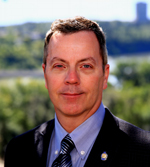
Last weekend, I attended two continuing medical education (CME) events for rural physicians, and one for medical students. These three events were accompanied by discussions in various media regarding physician pay, how medical services are organized, and public accountability by physicians for their services.
At the medical student’s conference, I heard an excellent presentation on professionalism and how happiness in the profession wasn’t as much about the money, but was derived to a greater extent from service and the trust earned by a physician through their actions with patients.
Over the course of the weekend, specifically at the physician CME events, I heard the following comments:
1.) We have a critical need to develop and sustain “hub and spoke” models of care (where the critical mass of physicians and other health care workers exist and are supported)
2.) We have to change how physicians are paid (move to blended models that promote comprehensive primary care)
3.) Changing how physicians are organized—into accountable community primary care models with other health care workers and a functioning electronic health record—was also emphasized.
At the Rural Health Services Review Committee, during presentations by provincial organizations such as RPAP and the CPSA, a comment was made that every community heard by the committee had problems attracting (and retaining) physicians. This reality underlines again the absolute need to move how we deliver health care in Alberta towards a system in which Albertan’s have access to reliable, sustainable and predictable health care services.
Alberta, specifically rural Alberta, requires a health services plan that specifies:
1.) The specific health care services that are to be provided (community primary care, continuing care, emergency and acute care)
2.) Where those services are to be provided
3.) The resources to be provided over multiple years to nurture them
Only then can we organize the supports to the health care system – people, buildings, training organizations, funders, etc. – to achieve success.
Failure to change confines us, I fear, to continue to witness the drawdown of rural obstetrical and surgical services; the reduction of comprehensive, generalist medical care in our rural communities; and continuing recruitment and retention challenges.
The close of the weekend was also marked by the 50th anniversary of the death of UK Prime Minister, Sir Winston Churchill. As Sir Winston’s great-grandson, Randolph Churchill said in an article in The Daily Telegraph: “…the public continues to love Churchill, warts and all. He has a place in the nation’s heart precisely because he was not perfect. What they want is for politicians to have the courage of their own convictions. And when this country needed it most of all, my great-grandfather certainly had that.”
And so in our own troubling economic and social times we need a display of real leadership from politicians “who have the courage of their own convictions”.
